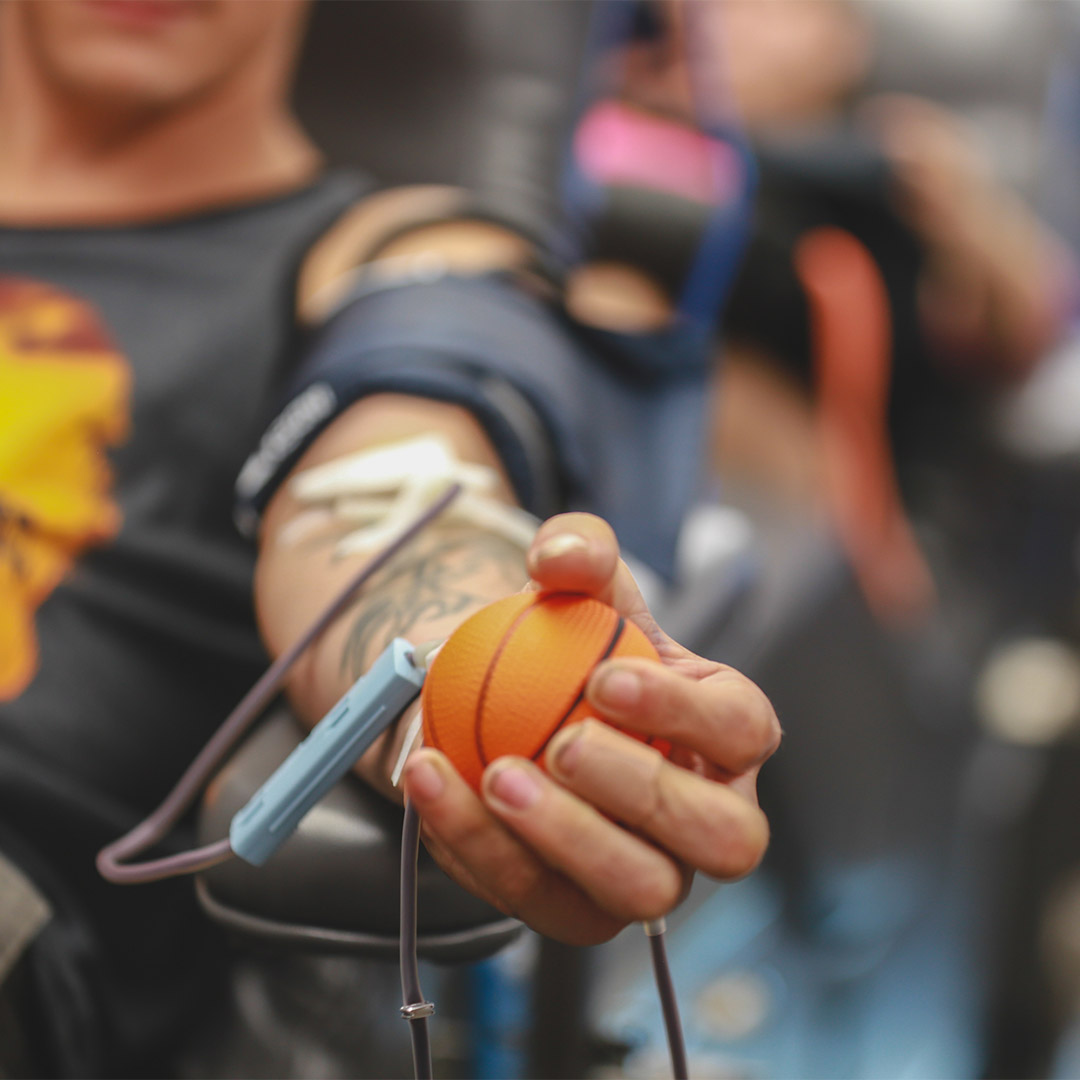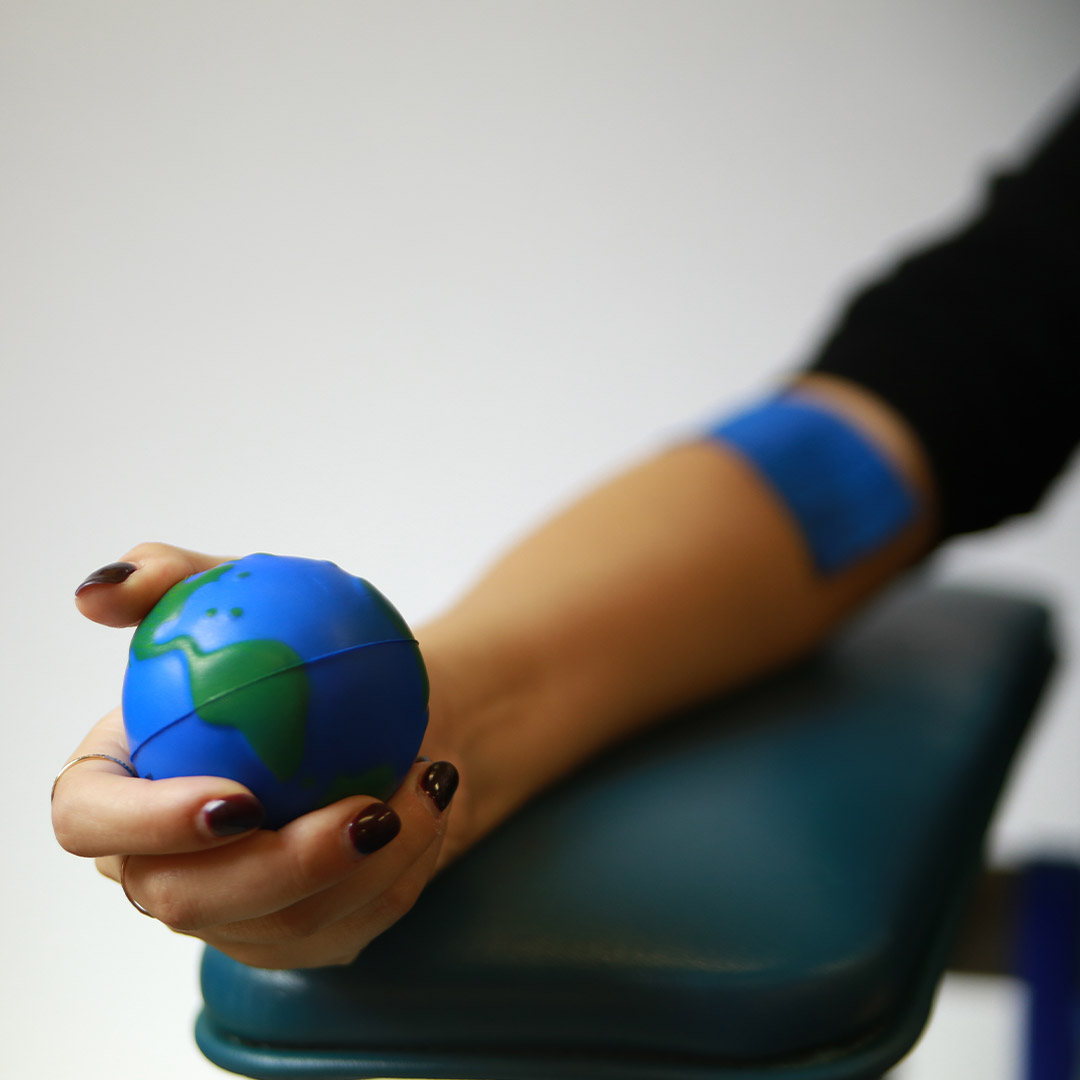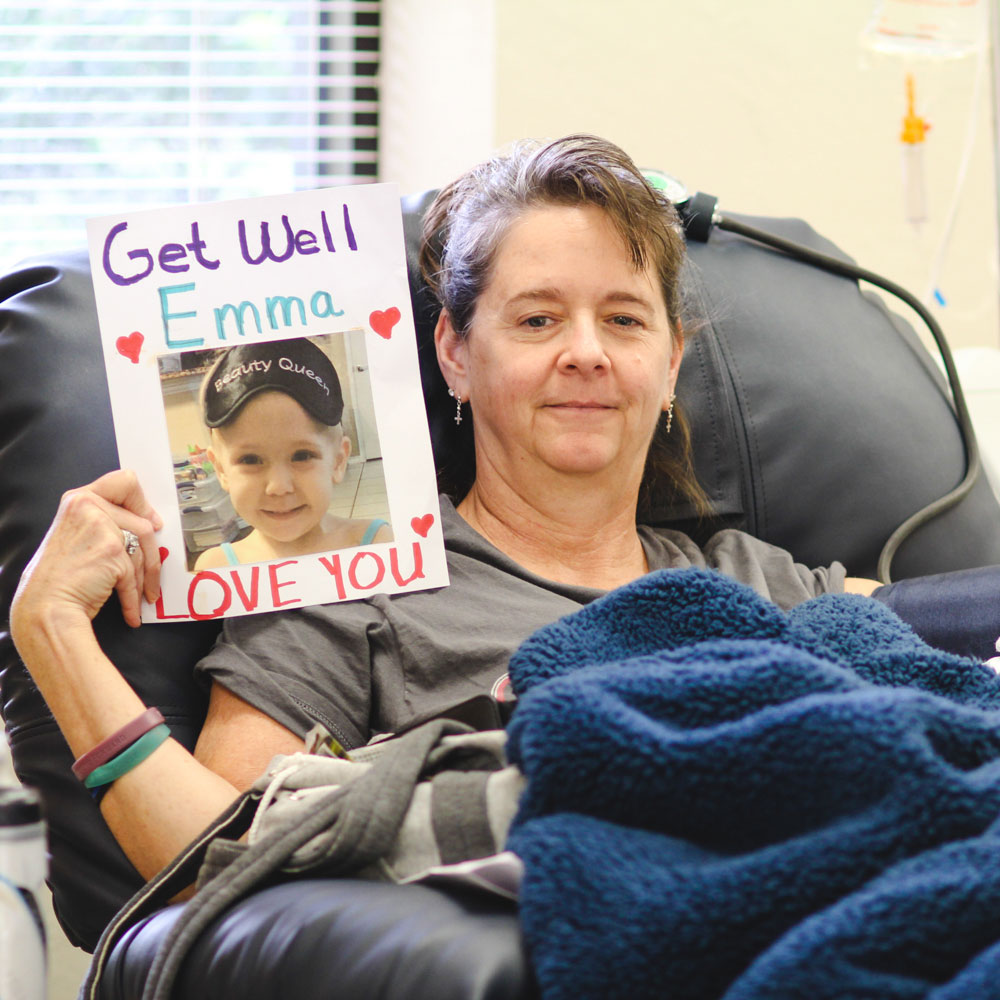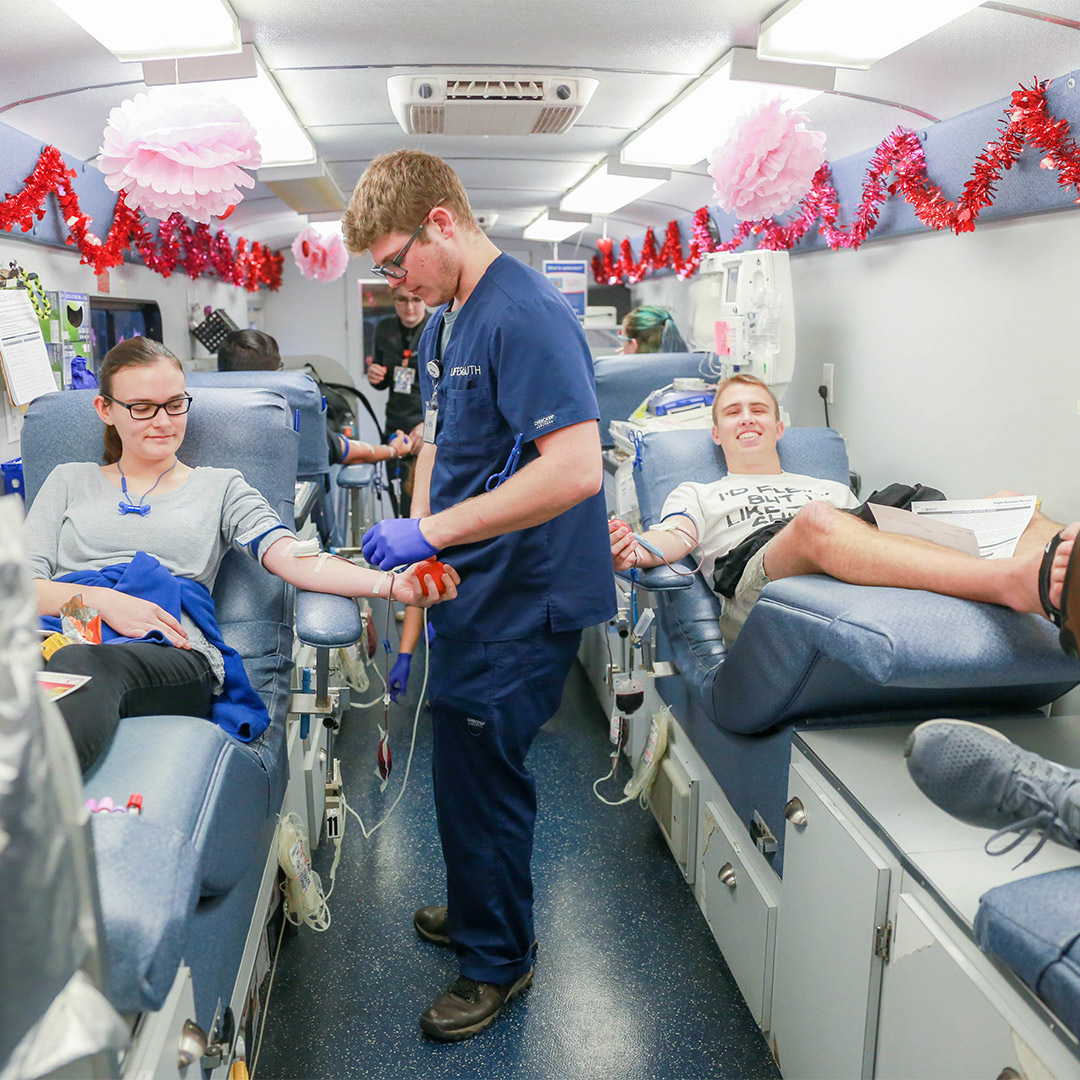Giving Blood
What You Need to Know
LifeSouth is a community blood center.
That means the blood supply collected from our donors directly serves the needs of patients in our local community. As a blood donor, you are a vital part of a team of individuals working together to save the lives of patients in our area’s hospitals.
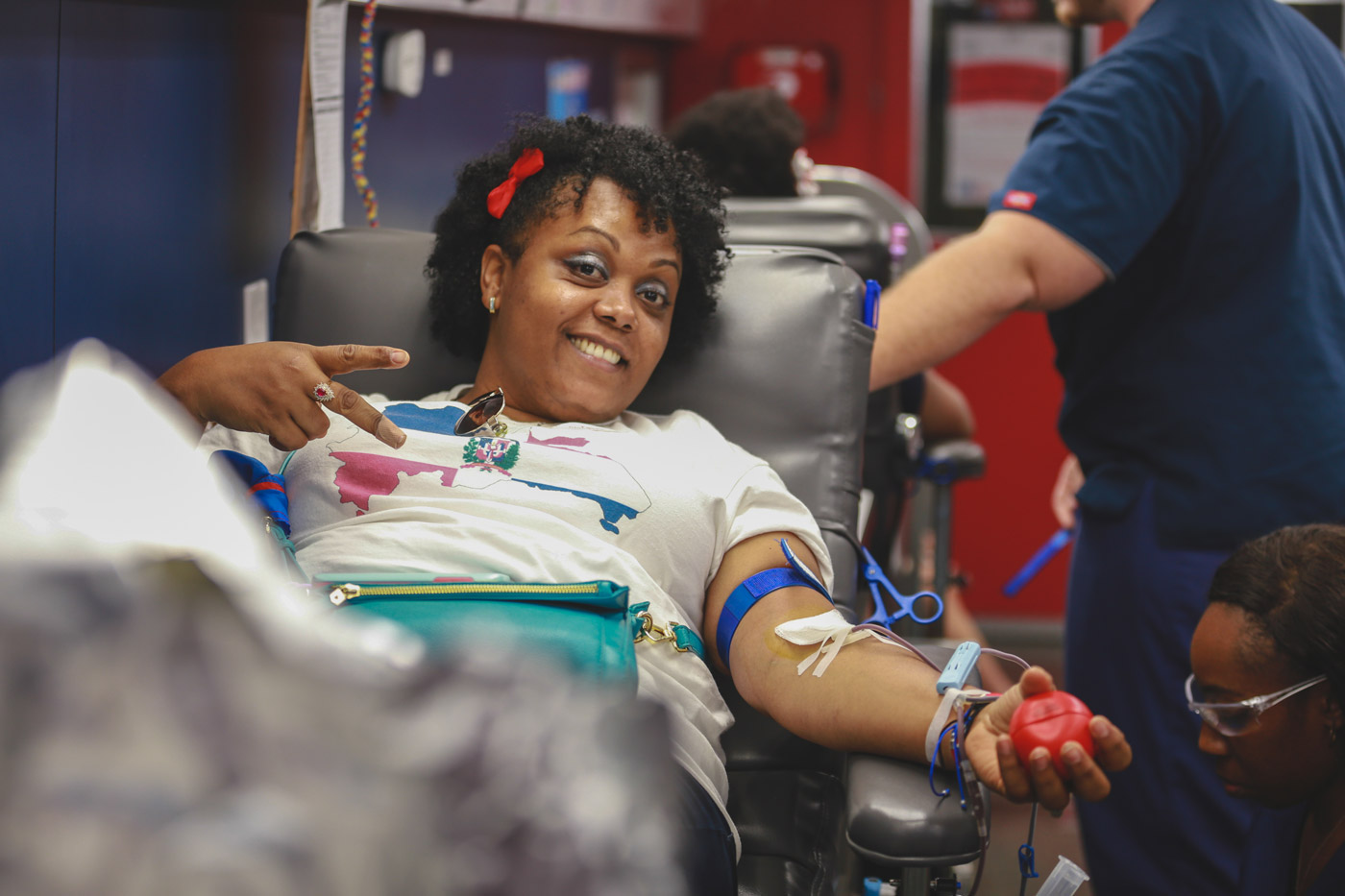
What Does the Process Look Like?
Donating blood is usually a simple and pleasant procedure. Your total time at the blood center or the bloodmobile will take about an hour, from registration through relaxation.
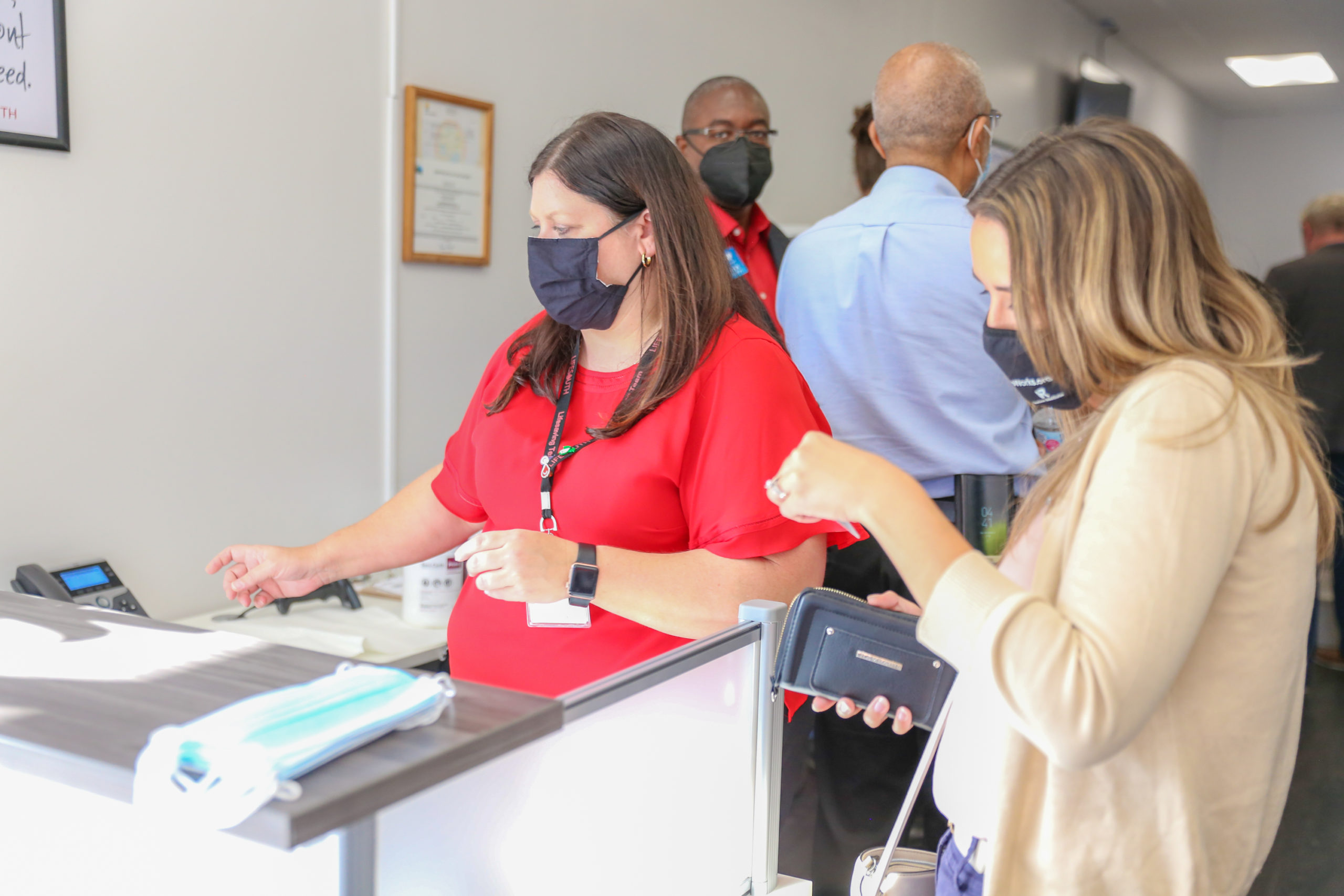
Step 1 – Registration
If you are a returning donor, your information will already be stored in our computer system by your name or Social Security number. We will ask you to verify your name, address and phone number. If you are a first-time donor, you will be asked for your name, address and additional information, and you will be entered into the system as a donor. You will need to show a valid photo I.D. to the registrar each time you donate.
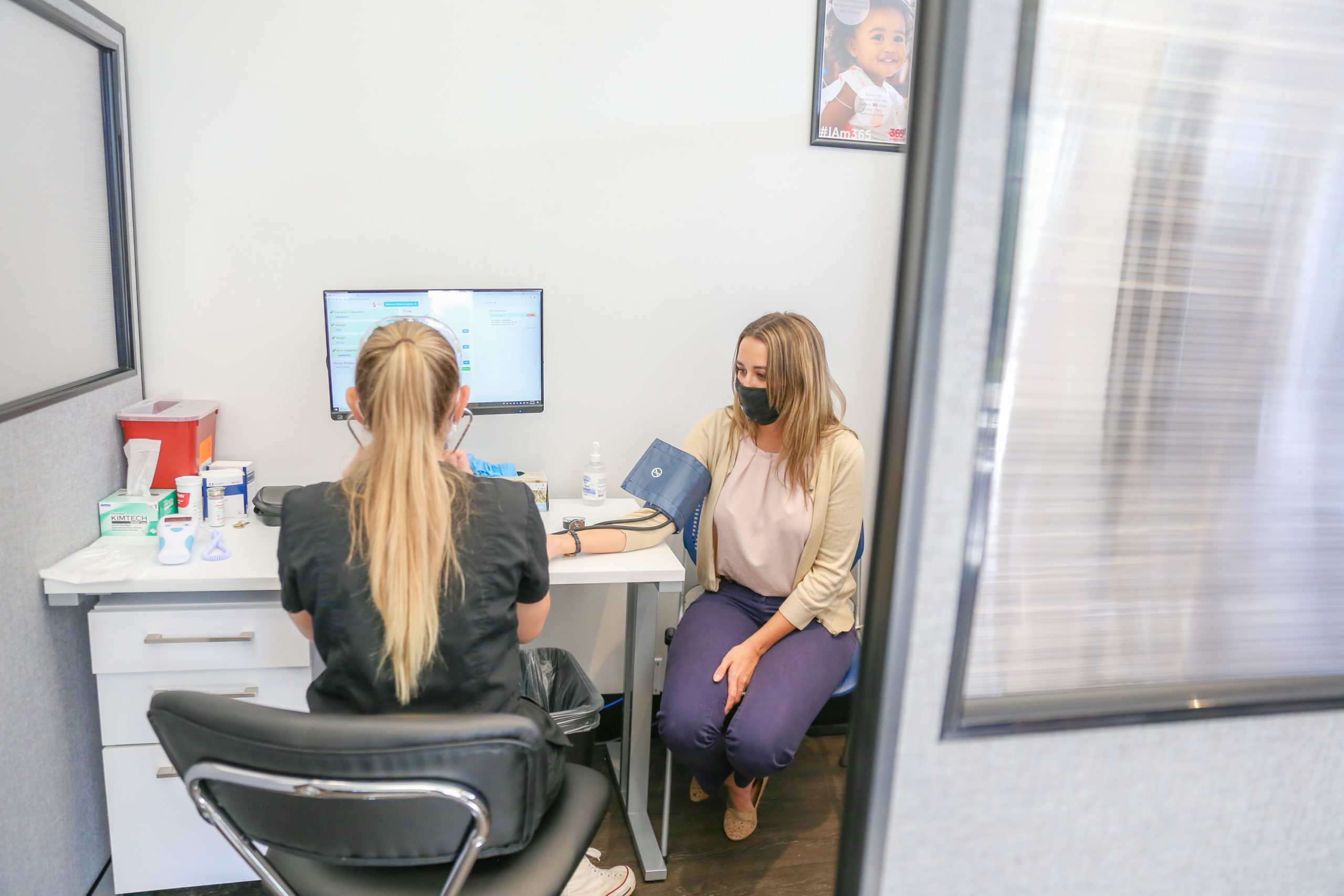
Step 2 – Interview and Mini-Physical
You will answer questions about your medical history, as well as questions required by the FDA to determine if you practice high-risk activities for contracting HIV, hepatitis and other diseases that are harmful to the community blood supply. A mini-physical will be performed to determine your blood pressure, temperature, pulse and iron level to ensure you are healthy enough to give blood. These results will be available to you after your appointment.
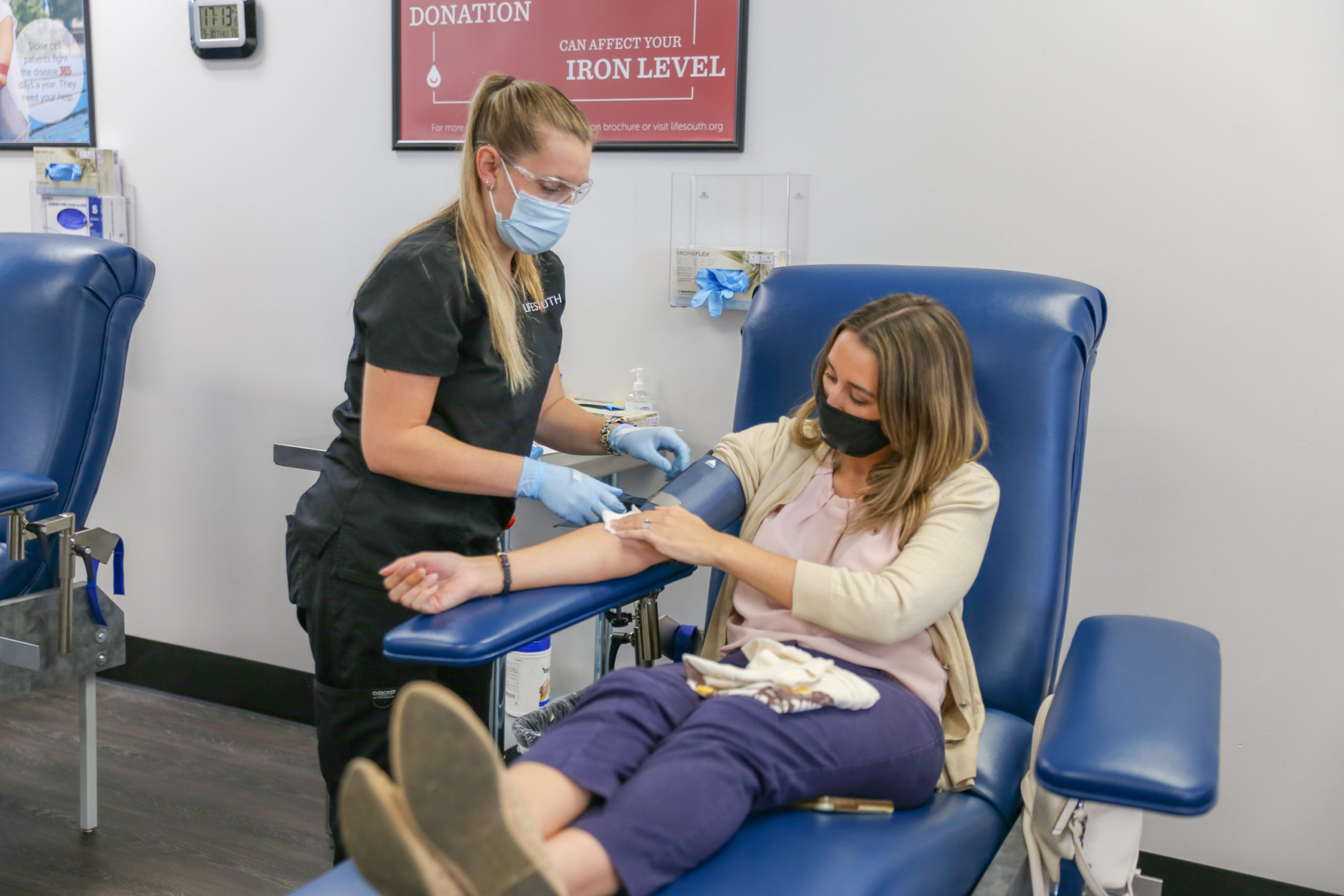
Step 3 – Donation Preparation
As you relax in the donor chair, the phlebotomist will check your veins, swab your arm with iodine and prepare the bag and other materials needed to collect your blood donation.
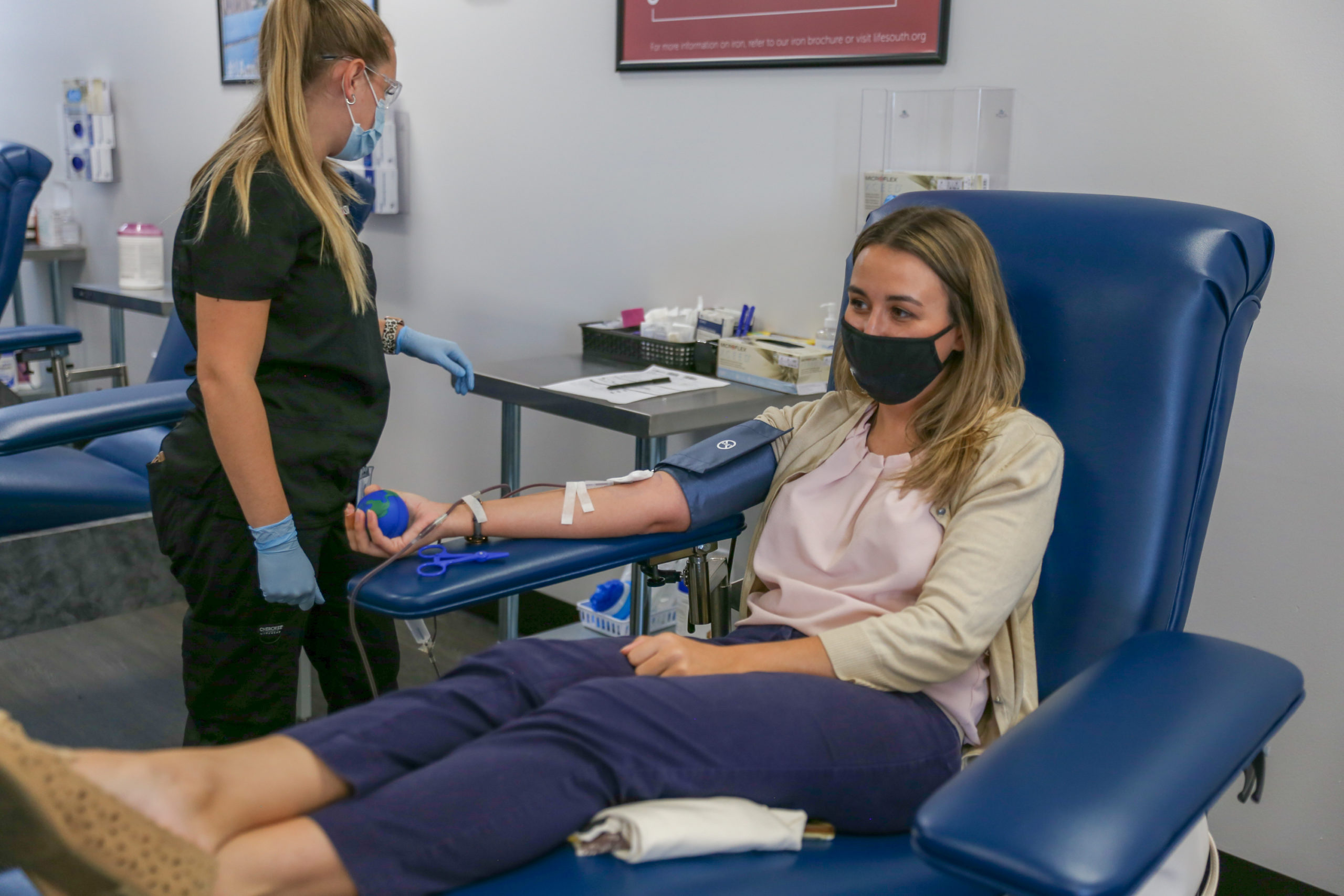
Step 4 – Blood Donation and Recovery
The actual donation time takes between four and eight minutes and, for most people, is a very comfortable process. The phlebotomist will also take four vials of blood for routine testing before the needle is removed from your arm.
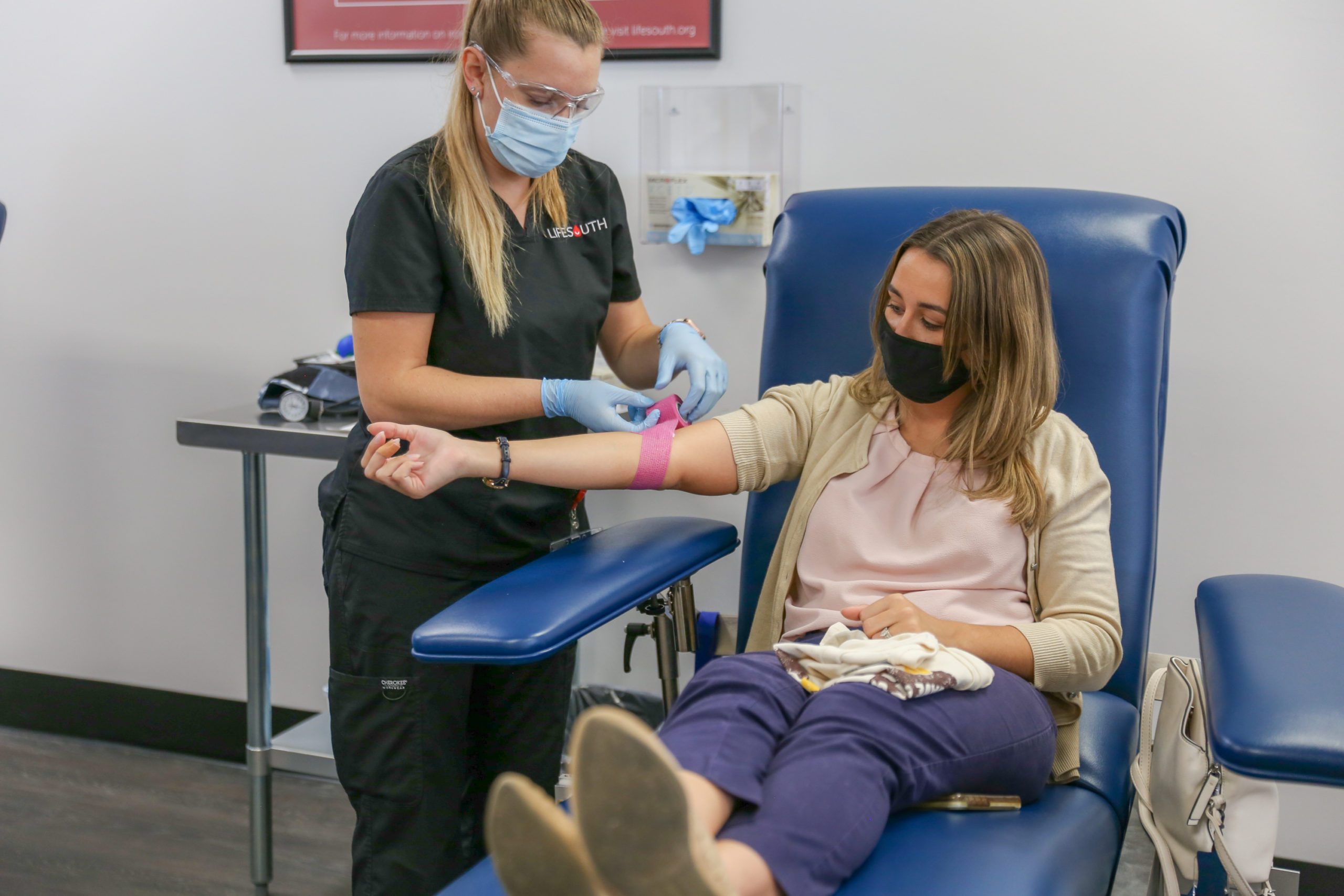
Step 5 – Relax
You will be offered juice and snacks, and encouraged to relax for several minutes after your donation is complete.
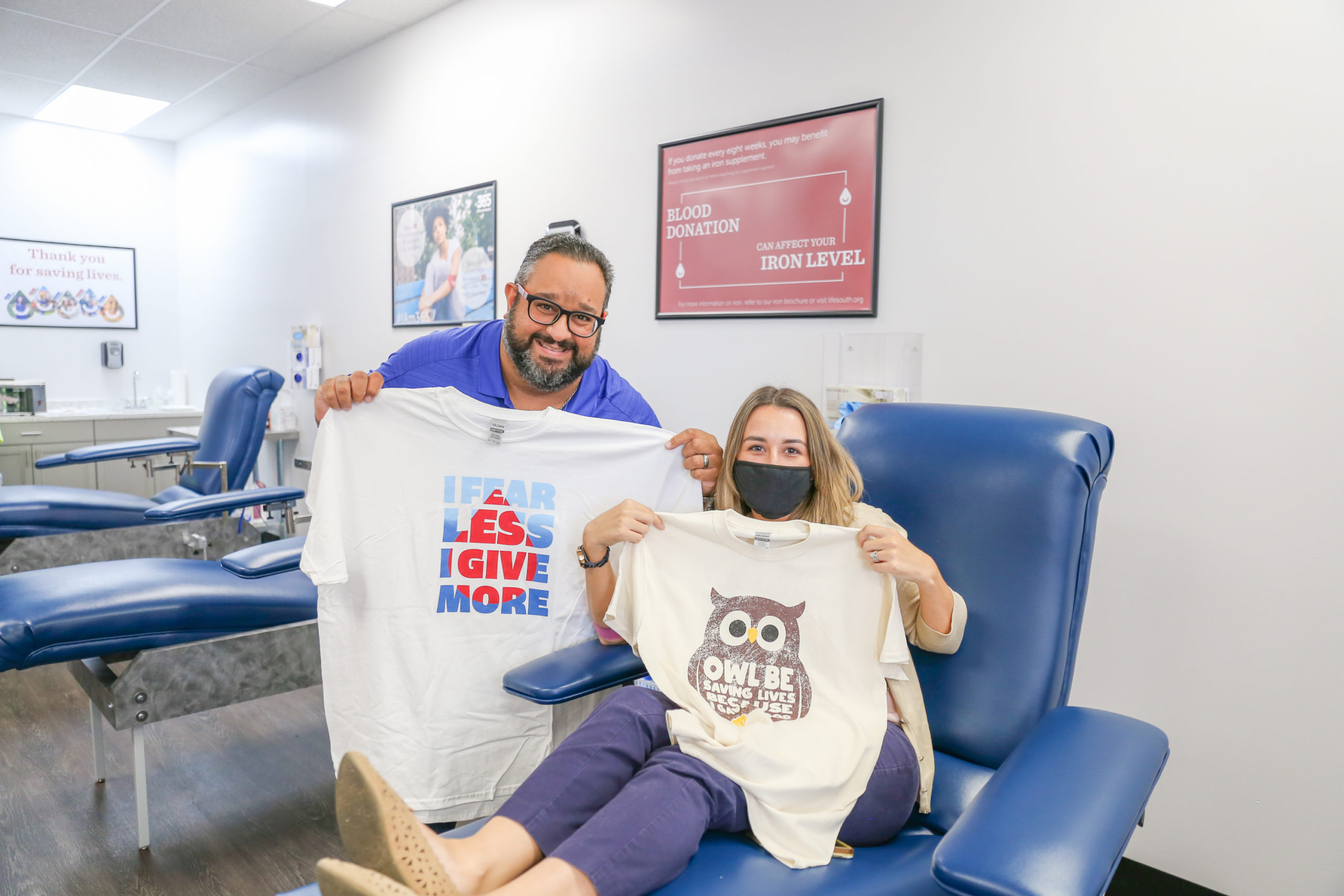
Have More Questions?
Please visit our Donor FAQs page to learn more.
Why Should I Give Blood?
Donating blood is a selfless act by one person to help save the lives of others. Blood cannot be manufactured, and local hospitals rely on LifeSouth blood donors to make sure blood is on the shelf to help patients in their moment of need. Approximately 37 percent of the U.S. population is eligible to donate, yet less than 10 percent donate annually. Whether you’re a regular or first-time donor, visiting one of LifeSouth’s donor centers or signature red, white and blue bloodmobiles is a powerful way to make a difference.
Am I Eligible to Give Blood?
To give blood you must be in good health, 17 years old or older (or 16 years old with parental permission), weigh at least 110 pounds and show a valid photo I.D.
Below are examples of instances or criteria that may prevent you from donating. To take this information on-the-go, refer to our Blood Donor Educational Materials. Our regulations continually change, so do not self-defer; a patient could be counting on you! If you have further questions, please contact us.
-
Age
We require all donors to be at least 17 years old, or 16 years old with a signed permission form from their parent or a guardian before the donation.
-
Anemia/Low Iron
Having a low iron count is not the same as being anemic; anemia must be diagnosed by a doctor. LifeSouth requires a hemoglobin level of 12.5 g/dL for females and 13.0 g/dL for males, due to the American Association of Blood Banks’ suggested regulations. Some forms of anemia are not due to inadequate iron consumption. If you are chronically anemic, please consult a physician.
-
Tattoos
There is no deferral period if you received tattoos or piercings from a state regulated or licensed parlor in Florida, Georgia or Alabama.
-
High Blood Pressure
Blood pressure is checked before every donation to make sure it is within an acceptable range. Medication for high blood pressure is also permissible.
-
Diabetes
If your diabetes is being treated and is under control, you are most likely able to donate blood.
-
Medication
Aspirin and ibuprofen will not affect a whole blood donation. Apheresis platelet donors, however, must not take aspirin or aspirin products for 48 hours prior to donation. Many other medications are acceptable. It is recommended that you check with your physician ahead of time to inquire about any medications you are taking to confirm if they may affect your eligibility to donate.
While many medications may prevent you from giving blood, you may still be able to donate while taking medications in the treatment of non-infectious diseases such as arthritis, chronic pain, gout, etc.
Consult the Medication Deferral List and call 888-795-2707 with any questions.
-
Travel
Blood donor tests may not be available for some contagious diseases that are found only in certain countries. If you were born in, have lived in, or visited certain countries, you may not be eligible to donate. If you have traveled extensively, it may help if you bring your passport with you when you donate to confirm specific areas and dates of travel.
We will ask you about any travel completed in the last three years. Please tell us about your travel history so that we can accurately assess your risk.
-
Cancer
Donors with a history of cancer are eligible to donate as long as they have completed treatment and recovered with no signs of active cancer remaining. Donors receiving prophylactic treatment, such as hormone therapy after breast cancer, are eligible to donate. Donors with low-grade prostate cancer (i.e. Gleason score 3+3) with no treatment planned are eligible to donate.
-
Pregnancy
If you are currently pregnant or have been recently pregnant, you should not donate blood for at least six weeks.
Pregnancy may cause women to develop antibodies to the fetus; that is why additional laboratory testing may be needed to ensure that all components of their platelets and plasma are safe to transfuse. Multiple pregnancies increase the likelihood that a woman will develop these types of antibodies. These antibodies have no effect on the woman’s health, but when transfused to another person, they may cause an adverse reaction.
LifeSouth Community Blood Centers also has a public cord blood bank program. LifeSouth Cord Blood Bank accepts donations of umbilical cord blood after the delivery of a single birth, uncomplicated pregnancy for eligible mothers delivering at one of the 13 LifeSouth Cord Blood Bank collection hospitals in Florida, Georgia and Alabama. Donating cord blood is free, painless and harmless to the mother and baby. To learn more, please click here.
What Types of Donations Are There?
What Type of Donation Should I Give?
If you know your blood type, click on it below to find out what type of donation to give.
Where Can I Give Blood?
You can donate blood at any of our permanent LifeSouth donor centers, or use our blood drive locator to find a bloodmobile near you.

